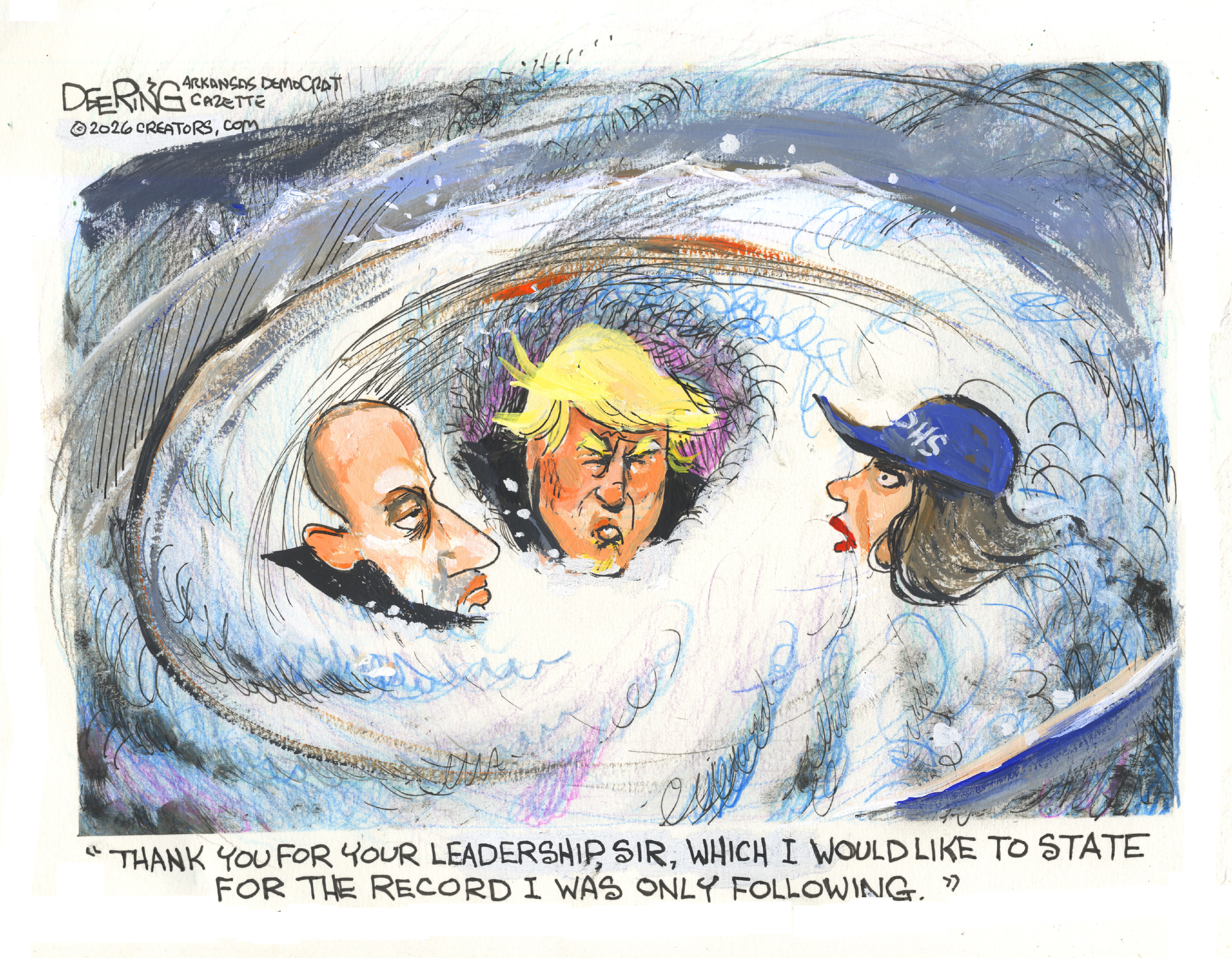Theater: A Behanding in Spokane
In Irish playwright Martin McDonagh’s uproarious black comedy, Christopher Walken offers a performance that is 90 minutes of sheer “off-kilter” brilliance, said Michael Kuchwara in the Associated Press.
A free daily email with the biggest news stories of the day – and the best features from TheWeek.com
You are now subscribed
Your newsletter sign-up was successful
Gerald Schoenfeld Theatre
New York
(212) 239-6200
The Week
Escape your echo chamber. Get the facts behind the news, plus analysis from multiple perspectives.

Sign up for The Week's Free Newsletters
From our morning news briefing to a weekly Good News Newsletter, get the best of The Week delivered directly to your inbox.
From our morning news briefing to a weekly Good News Newsletter, get the best of The Week delivered directly to your inbox.
***
If you want to create a creepy play, “Christopher Walken is your main man,” said Michael Kuchwara in the Associated Press. In Irish playwright Martin McDonagh’s uproarious black comedy, Walken plays Carmichael, a stringy-haired sociopath who for 47 years has been on a quest to find his left hand, which he claims was severed from his body by a gang of “hillbillies.” We meet him in a fleabag hotel, where a two-bit dope dealer named Toby (Anthony Mackie) and his girlfriend, Marilyn (Zoe Kazan), have just tried to pawn off a bogus paw on him. When Carmichael discovers the con, Walken launches into a performance that’s 90 minutes of sheer “off-kilter” brilliance.
“Onscreen, Walken’s shtick has veered into self-parody,” said Frank Scheck in The Hollywood Reporter. But the actor’s repertoire of “physical mannerisms, offbeat comic timing, and hilarious vocal inflections” actually works better in the flesh. From the moment the curtain lifts on a seedy hotel room, where Carmichael is holding Toby and Marilyn hostage, Walken proves “endlessly entertaining,” commanding laughs before he speaks a word of dialogue. Mackie and Kazan hold their own against Walken’s escalating insanity, as does Sam Rockwell, who shines as a hotel desk clerk with his own psychotic quirks.
Like Walken, playwright McDonagh relies on a signature bag of tricks, said Ben Brantley in The New York Times. He packs the script with enough racial and sexual epithets to “make David Mamet flinch” and—as you might expect, given the Grand Guignol quality of earlier McDonagh works—body parts end up being “flung in the anatomical equivalent of a food fight.” Yet Behanding lacks any sort of broader theme, and John Crowley’s direction too often makes it seem like “a conventional Hollywood caper about dopey, foulmouthed crooks who keep tripping over themselves.” Walken deserves a hand, so to speak, but this production “never matches the strange genius of its star.”
A free daily email with the biggest news stories of the day – and the best features from TheWeek.com
-
 Political cartoons for February 8
Political cartoons for February 8Cartoons Sunday’s political cartoons include going down the drain, American history, and more
-
 Touring the vineyards of southern Bolivia
Touring the vineyards of southern BoliviaThe Week Recommends Strongly reminiscent of Andalusia, these vineyards cut deep into the country’s southwest
-
 American empire: a history of US imperial expansion
American empire: a history of US imperial expansionDonald Trump’s 21st century take on the Monroe Doctrine harks back to an earlier era of US interference in Latin America
-
If/Then
feature Tony-winning Idina Menzel “looks and sounds sensational” in a role tailored to her talents.
-
Rocky
feature It’s a wonder that this Rocky ever reaches the top of the steps.
-
Love and Information
feature Leave it to Caryl Churchill to create a play that “so ingeniously mirrors our age of the splintered attention span.”
-
The Bridges of Madison County
feature Jason Robert Brown’s “richly melodic” score is “one of Broadway’s best in the last decade.”
-
Outside Mullingar
feature John Patrick Shanley’s “charmer of a play” isn’t for cynics.
-
The Night Alive
feature Conor McPherson “has a singular gift for making the ordinary glow with an extra dimension.”
-
No Man’s Land
feature The futility of all conversation has been, paradoxically, the subject of “some of the best dialogue ever written.”
-
The Commons of Pensacola
feature Stage and screen actress Amanda Peet's playwriting debut is a “witty and affecting” domestic drama.